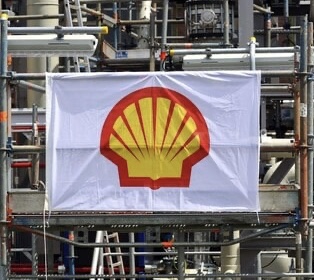Royal Dutch Shell Plc (Shell) announced a surprising move on July 2nd, 2024, hitting pause on construction of one of Europe’s largest planned biofuels facilities. The decision comes amidst a backdrop of weak market conditions for biofuels, reflecting a broader strategic shift by Shell towards prioritizing its most profitable ventures.
Focus on Core Business: A Move Away from Renewables
Since taking the helm in January 2023, CEO Wael Sawan has been steering Shell towards a more streamlined operation focused on core oil and gas production. This strategic pivot has involved divesting from or delaying renewable and hydrogen projects that were previously part of the company’s portfolio. Recent examples include exiting power markets in Europe and China, along with the sale of several refineries.
The decision to pause construction on the biofuels plant in Rotterdam, Netherlands, aligns with this focus on profitability. The facility, designed to produce sustainable aviation fuel and renewable diesel from waste materials, was initially slated for completion in 2025. The revised timeline now pushes back production to the late 2020s.
Shell attributed the project’s delay to a decline in biofuel prices. Several factors are contributing to this market weakness. Reduced demand in Europe, particularly after Sweden cut a biofuel mandate, coupled with a rise in biofuel production from the United States, have created a situation of oversupply. Analysts anticipate a well-supplied biofuels market in the coming years as additional production capacity comes online.
Project on Hold, But Not Abandoned
Despite the pause, Shell remains committed to achieving net-zero emissions by 2050, with low-carbon fuels still considered a key element of its strategy. The company will use this time to evaluate the project’s commercial viability and determine the most cost-effective path forward. This may involve optimizing project sequencing and reducing the number of contractors on-site to control costs.
Shell will also consider potential financial write-downs associated with the project and provide further details during its upcoming quarterly update.
Shell’s decision is not an isolated incident. Last week, competitor BP also announced delays on two biofuels projects in Germany and the United States. These developments raise questions about the short-term viability of advanced biofuels and the challenges major energy companies face in navigating this evolving market. Biofuels represent a potential solution for reducing emissions in the transportation sector, but current market conditions and technological limitations are creating hurdles.
The Road Ahead for Biofuels
The future of biofuels remains uncertain. While Shell’s decision suggests a temporary setback, it doesn’t necessarily signal a complete abandonment of the technology. Technological advancements, policy changes that incentivize biofuel production, and a shift in consumer demand towards sustainable alternatives could all contribute to a more robust biofuel market in the long term.
Energy companies like Shell will need to carefully weigh the risks and rewards of biofuel investments as they navigate this period of transition. Balancing short-term profitability with long-term sustainability goals will be a key challenge for the industry in the years to come.
Source: Reuters



